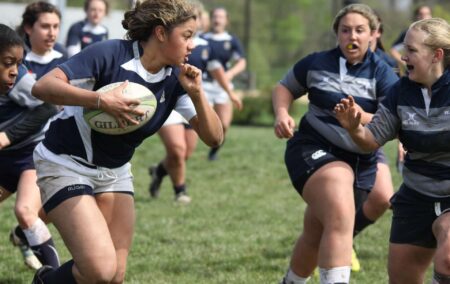World Rugby, the global governing body for rugby union, has barred trans women – biological males who identify as women – from playing in the international women’s game, on the grounds of safety, according to The Economist.
The ban will probably affect individual countries too, since international players are drawn from the top clubs. At the lower levels, the decision has been left to the governing bodies in individual countries.
World Rugby organised a workshop to which it invited scientists, players, lawyers and ethicists. A crucial question was whether testosterone-suppressing drugs were enough to counter the sporting advantages enjoyed by males.
Most males are bigger, stronger and faster than most females. The advantage varies from sport to sport, from around 10% in running to more than 30% in weightlifting.
Data on strength and speed in top rugby players of both sexes showed only a small overlap in speed over a ten-metre dash. The bulkiest males were a fraction slower than the fastest females, but fast males left both standing. Data on the bench press revealed no overlap at all.
Much sex-based advantage arises from testosterone. Testosterone is the primary male sex hormone and the original anabolic steroid.
On suppressing testosterone production to undo its advantages, a review paper revealed the measure of muscle size or ‘lean body mass’ (total body weight minus fat). Changes were reported in the order of a 5% loss after one to three years of suppression – far too little to remove the physical advantages possessed by males. Participants in the studies had testosterone levels below the International Olympic Committee’s guideline levels. This suggests that no amount of testosterone suppression in adulthood can bring male athletes into line with female ones.
World Rugby weighed questions of fairness, inclusion and safety, but it was safety that clinched the decision.
Image by laurabodenschatz from Pixabay

